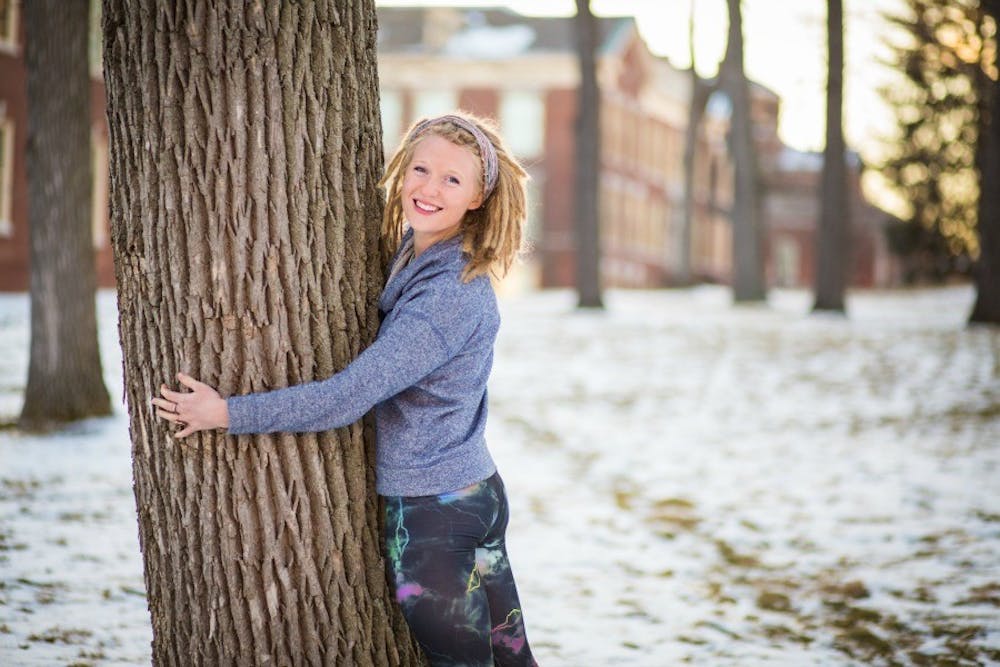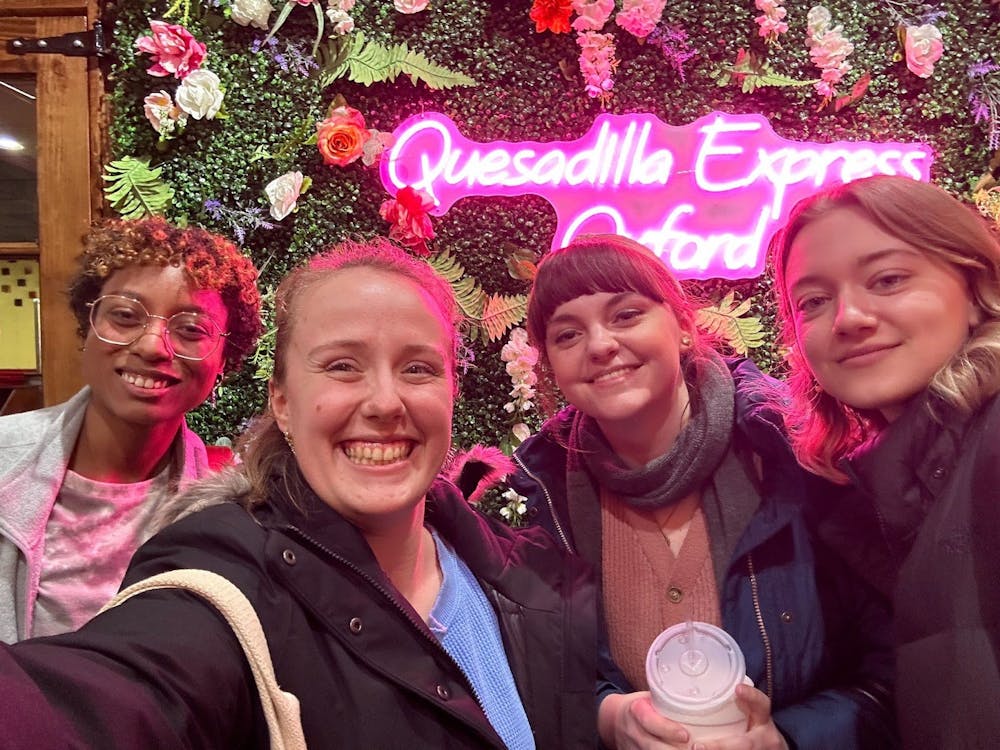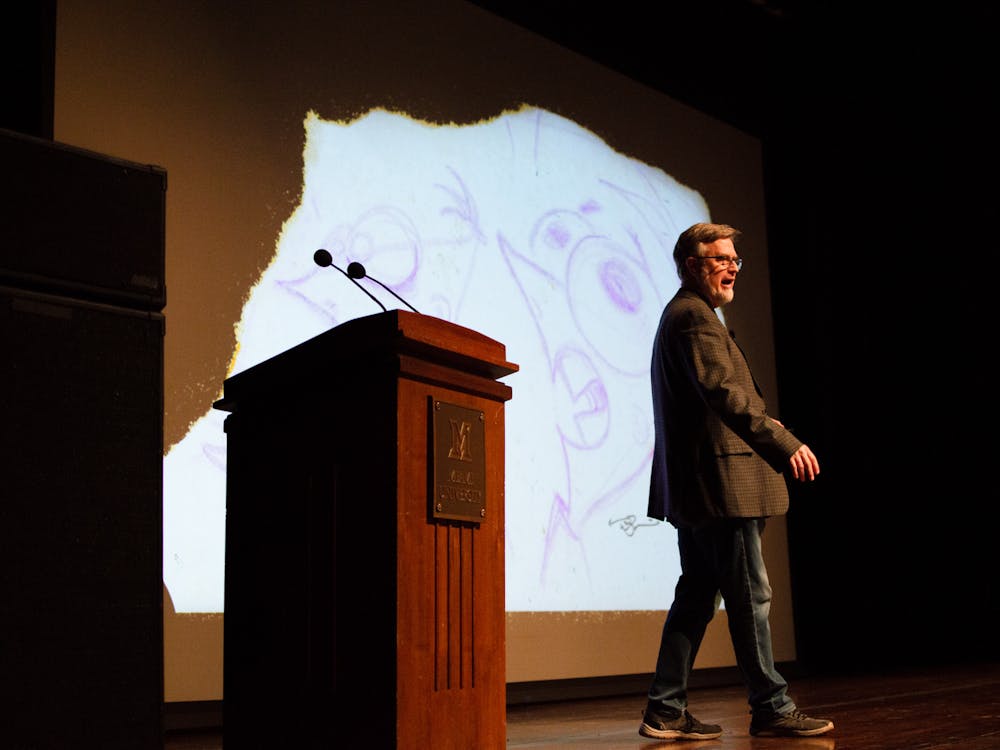By Audrey Davis, For The Miami Student
There is nothing traditional about the path junior Mickey Myers has chosen to take at Miami University. Mickey is part of the Western Program, which allows students to design their own majors.
She began college as a social justice major, but in her early classes she realized her interests were not being covered.
"At the time, I was specifically interested in this idea of food security and this natural connection that humans have with the environment," Mickey said. "I wanted to have a little bit more freedom."
The major she designed is an intersection of environmental and social justice that specifically deals with food security and sustainability as well as the idea of wilderness therapy and ecopsychology.
"What I really like about Western is this idea of student directed inquiry," Mickey said. "Rather than having someone from the outside or a superior authority figure tell us what we need to do in order to educate ourselves, we are taking control of our own education."
Mickey's younger sister Phoebe is a first-year at Miami who is also a part of the Western Program.
"[Mickey] has inspired me to think outside the box and has made me realize that you sometimes don't even know opportunities are out there until you ask for them," Phoebe said.
Right after college, Mickey would like to get involved in wilderness therapy, which would allow her to go to places where children are in vulnerable positions, specifically in urban environments, and bring those kids into the wilderness. Mickey would take the kids on adventures involving hiking, rock-climbing, yoga and meditation.
Wilderness therapy is the idea of returning to your roots. Mickey said living in urban settings is incredibly detrimental to the developmental health and psychology of children, so kids who are not exposed to nature find it difficult to understand their connections with it. Wilderness therapy is about bringing people into the wilderness and away from human society, where they can live off of what they find in nature, at least in part, and sustain themselves through their own explorations and open up to the environment in a spiritual and psychological way.
"Another direction I've been thinking about is sustainable agriculture and urban permaculture or even rural permaculture," said Mickey.
That would involve creating sustainable ecological systems that provide food with a business component where she would be selling food as well as making food available at the community level. This would allow people who don't usually have access to fresh organic food to not only be exposed to it but to also be taught that food is actually something that grows from the ground.
Enjoy what you're reading?
Signup for our newsletter
Through the Western Program, Mickey has a lot of flexibility in the classes she can take, including a year of independent study in Hawaii for academic credit.
Kevin Armitage, an associate professor in the Western Program, was Mickey's advisor for the trip.
"Mickey is the kind of person who is prioritizing very rich experiences for her life and, rather than dreaming about that, she's really making it happen," said Armitage. "That's a great thing. That's what everyone should do."
Armitage said the first part of Mickey's educational experience in Hawaii was simply to live in an intentional, environmentally stable community. Every week she would write an essay for Armitage about a wide variety of topics including how to make housing out of indigenous materials or how the community she was living in handled things like recycling.
"The great thing about her was that I didn't have to nag her," Armitage said. "She just did it."
Mickey also created her own website about indigenous issues and sustainability in Hawaii.
"I remember her working out her independent study in Hawaii, and I thought that was the coolest thing ever - that she could just live in a commune in Hawaii for an entire school year and write some papers and read a book and still get an entire year's worth of credit hours from the experience," said Phoebe.
Mickey is also heavily involved in a volunteer organization called WorldWide Opportunities on Organic Farms (WWOOF).
WWOOF is a free work exchange in which people volunteer their time on an organic farm in exchange for room and board.
The program is a great way to get involved in the agricultural field, and WWOOF does not require their volunteers to have any background knowledge about organic farming. The local farmers introduce volunteers to the field and show them what they need to do.
Mickey started her experience with WWOOF in Thailand several years ago.
"I found this beautiful alternative rehabilitation center and organic permaculture farm and was really interested in getting involved in organic agriculture and yoga, and I knew they had both of those things, so I went, and I don't think before that I really knew exactly what the benefits of those things were," said Mickey. "I just had this big idea of how nice it would be to work on the farm and do yoga every day."
After her experience in Thailand, Mickey continued "WWOOFing" in Spain and Guatemala.
"She's always been really out there which is inspiring for me because sometimes I have inhibitions," said Phoebe. "I'm like, 'Oh, what will people think of me?' or 'I don't speak Hindi, so I don't think it would be a good idea for me to live in India,' but those things do not hinder her in any way. She'll just be what she wants."
Phoebe sees Mickey following her dreams and continuing to be immersed in nature.
"I could definitely see her teaching yoga in the mountains and also being a white-water rafting guide or just doing multiple jobs at once," said Phoebe. "I don't think she'll ever be in the same career for 50 years, but I could definitely see her continuing the interests she already has and continuing to travel even more."




